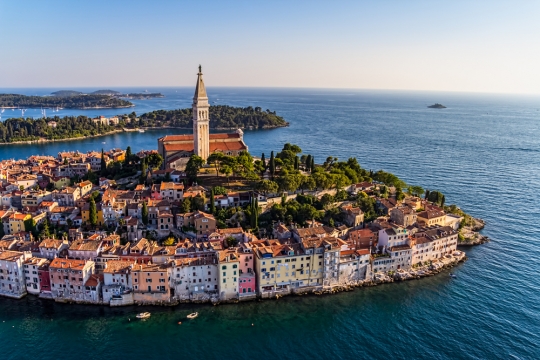There is an endless list of things to plan when it comes to moving house, let alone country! Expats who are planning a move will almost all be thinking about where to live, and some may also be concerned with citizenship. It’s not often that these two subjects go hand in hand, so the question of whether you should rent in Croatia before becoming a citizen may initially seem counterintuitive but is relevant for this country. We’ve created this guide to answer this question, and also show how you can potentially achieve Citizenship in Croatia through renting.Firstly, you don’t have to become a citizen to rent long term in the country, but renting can help you become a citizen in Croatia. Most nationalities will be permitted to stay as tourists for up to 90 days, depending on the agreement between your country and Croatia. If you want to stay for a longer period than this, you will need to apply for a temporary stay or long-term visa.
Different Types Of Visa
A long-term visa will be based on your work prospects, employment, education, family situation and whether your spouse or immediate family already reside in Croatia. In contrast, a temporary stay visa can be granted by the local authorities – the police in this case – for up to a year.
The options for obtaining a temporary visa in Croatia are as follows:
A) Buying a property in Croatia, which may not on be the cards for everyone
B) Establishing or investing in a company in Croatia, which again may be challenging for many
C) Getting a maximum one year stay with the lease of an apartment in Croatia, which is more affordable than buying
This begs the question of whether you can achieve permanent residency in Croatia through the means of a long-term lease. Theoretically, yes you can. You can apply for up to five temporary stay visas, each of which will be for a year. However, the process for the second temporary stay and onwards is usually more difficult and has additional requirements compared to the initial visa. These requirements usually entail possessing a non-payment work visa such as a volunteer visa under humanitarian grounds.
After five years in Croatia, providing you haven’t left the country for a stipulated amount of time, you can apply for permanent residency. The stipulated time may vary depending on your nationality; as it stands, it looks to be no more than six months at one time, or 10 months within the five-year period. For non-EU expats, it may be stipulated that a trip outside of Croatia during this period of time cannot be greater than 30 days, so it is best to read the government guidelines or consult with a local lawyer who can advise you.
You will also need to have a valid passport, health insurance and proof of means to support yourself – although this doesn’t apply to retirees over 65 – as well an understanding of the Croatian language. Further to this, Croatian citizenship can be applied for after you have been living in the country continuously for eight years.
This may seem like a long game, but it entirely depends whether your goal is to live in Croatia, and eventually obtain permanent residency and citizenship there, as well as what your situation is in terms of the other visas available.
The Downside
Whilst this all may seem great there is – unsurprisingly – a catch. You must pay for the lease in its entirety, meaning you’ll need a whole year’s rent up front. This could of course lead to the fear that you will pay the money, sign a lease, and then get rejected for the temporary stay visa. This is why it is highly advisable to enlist the services of a local English-speaking lawyer who can guide you through the process and advise you on the best course of action and proceedings. To do this, you will need to pay a commission which of roughly one month’s rent.
The Process
Once you have found a suitable apartment and agreed on the lease with the owner, it will need to be notarized in the government office (for a cost of 85 Kuna) and the rent will be need to be paid in full. The lease can then be used in your application for temporary residency with the local authority, which is often the police. You will also need a Croatian ID number, which can also be obtained from the government office.
In Conclusion
If you have a different visa from the temporary stay or voluntary visa, renting isn’t necessary for you to stay in the country but will boost your credentials and will help towards your application for citizenship.
So should you rent in Croatia before becoming a citizen? The answer is, it entirely depends on your personal (and financial) situation, what your plans are for Croatia, how long you want to stay, and your visa options.

